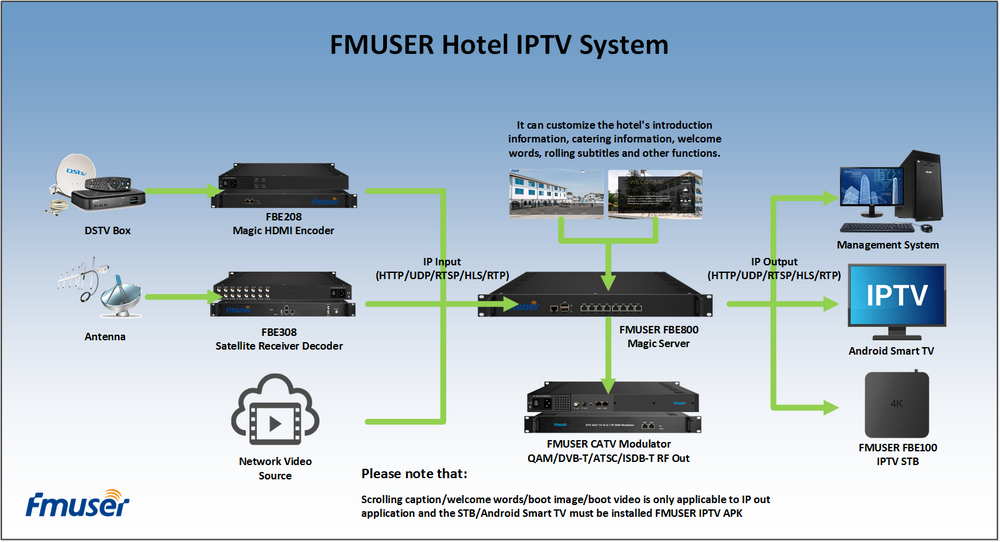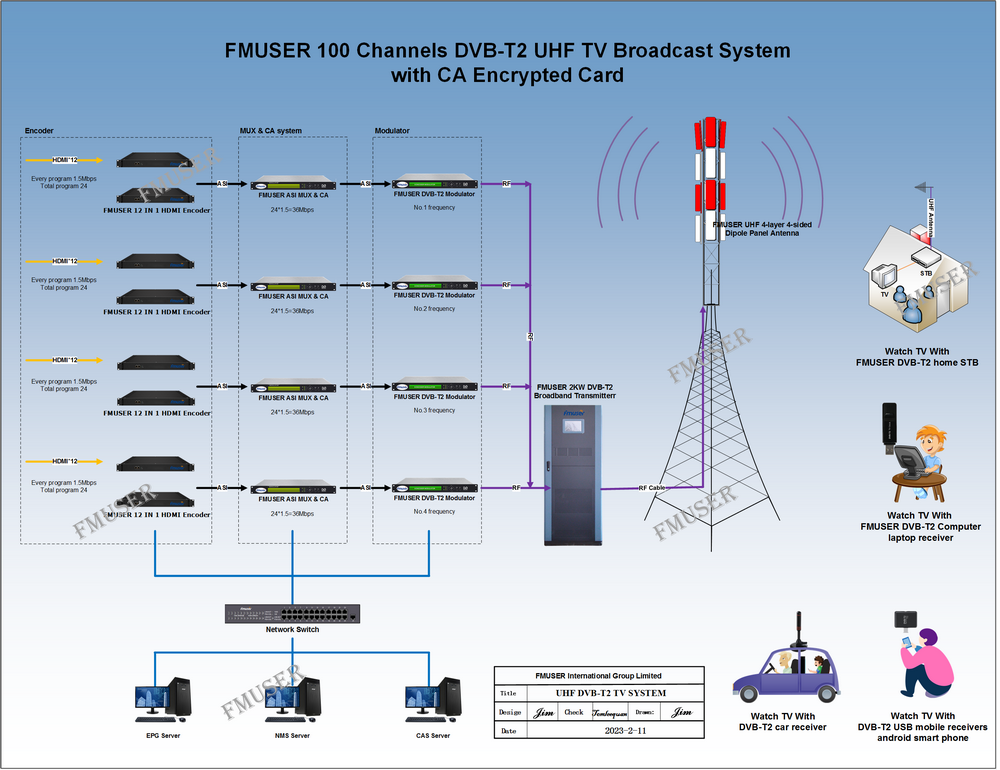"When Hou Weigui, who has been in charge of ZTE for 30 years, is about to resign as chairman of ZTE (hereinafter referred to as ZTE), this well-known Chinese telecommunications equipment manufacturer is facing a major crisis of life and death: there are more than 20 days before the end of the term of office of ZTE's sixth board of directors on March 29, and a" export embargo "from the U.S. Department of Commerce, So that 75 year old Hou Weigui's planned retirement is no longer dull.
On March 7, the U.S. Department of Commerce announced that ZTE and its three affiliated companies were included in the "entity list", and American enterprises and manufacturers acting as agents for American products and technologies were prohibited from exporting relevant technologies and products to ZTE.
"If ZTE fails to solve this problem within an effective time, there will be major problems in ZTE's supply chain, and many of ZTE's main products will not be produced. Not only can it not sign new projects, but the projects signed in the past may also be out of supply, causing chain default risk. Even if ZTE has spare parts in stock, it may not be sustainable until about half a year. " A senior analyst in Hong Kong who pays attention to the communication industry told Caixin, "if ZTE adopts the tactics of procrastination on the export embargo, it will drag itself to death."
He believes that such an export embargo, no matter which Chinese science and technology enterprises, including Huawei, is a huge disaster“ In the field of ICT, China has not been able to achieve complete substitution. " "In many core areas, such as CPU, memory, base station chips, optical devices, high-end raw materials, and even the recently popular artificial intelligence GPU, China's scientific and technological level is still relatively backward," he said
ZTE knows its situation. After more than half a month of communication and game, the export embargo has taken a turn for the better. Caixin reporter learned from ZTE insiders that on March 24, after the U.S. Department of Commerce announced to grant ZTE a temporary export license, ZTE's U.S. supply chain has successfully delivered the goods and transported the goods to Shenzhen within two or three days. On March 28, ZTE has received the first batch of goods. He said that at present, ZTE's production is normal.
However, ZTE should not take it lightly. The ZTE insider said bluntly: "the temporary license is until June 30. After that, ZTE needs to apply again. During this period, no one can guarantee how the United States considers it."
Multi party game "Iran project"
The US Department of Commerce imposed export restrictions on ZTE because the US side believed that ZTE "violated the interests of US national security and foreign policy".
After the United States severed diplomatic relations with Iran in 1980, it has been imposing economic sanctions such as export embargo on Iran. With the resumption of Iran's nuclear research in 2003, the "Iranian nuclear issue" has attracted the attention of the international community. The United States and the United Nations have imposed economic sanctions on Iran many times, including freezing Iran's overseas assets and prohibiting the export of American products or technologies to Iran in any way. On July 14, 2015, Iran reached a comprehensive agreement with six countries on the Iranian nuclear issue (the United States, Britain, France, Russia, China and Germany): Iran will limit its nuclear program; In exchange, the international community will lift sanctions against Iran. On January 16, 2016, the agreement has been implemented.
However, on March 7, 2016, the US Department of Commerce believed that ZTE had illegally sold embargoed products to Iran. Specifically, the US Department of Commerce accused ZTE of reselling a series of US high-tech products to Iran through ZTE KANGXUN Electronics Co., Ltd., Beijing Baxing Co., Ltd. and an Iranian company ZTE parsian, in violation of us export control laws.
The U.S. Department of Commerce threw out its chips and published two documents on its official website: the report on comprehensively rectifying and regulating the company's export control related businesses and the risk avoidance plan for import and export control. The two documents are marked with the logo of ZTE and marked with the words "confidential" and "top secret". Between the lines, they describe "which embargoed countries ZTE has projects in", "how to avoid risks by isolation" and "what are the possible risks". One of the documents is dated August 25, 2011.
A number of people close to ZTE told Caixin that around 2012, the United States had negotiated with ZTE on the Iranian project. "U.S. officials went to ZTE's U.S. subsidiary to check work computers and copy many documents".
"More than three years ago, the United States held a hearing on the Iranian project, and an executive surnamed Liu of ZTE America participated in the hearing. Now, he has left ZTE. " A person familiar with ZTE disclosed. Caixin reporter sent an email to the executive for confirmation, but has not received a reply.
After dormant for several years, why should the United States impose severe punishment on ZTE this year? Many ZTE insiders prefer to be influenced by political factors and "catch up with the US election after all". However, there is also a view that the judicial process in the United States, including evidence identification, may take a long time before punishment will be imposed a few years later.
"As a party, ZTE is now influenced by politics. What is the story behind it? You can never know without it. " The above Hong Kong analysts believe that.
It can be seen that the punishment given by the US Department of Commerce for ZTE's Iran project this year surprised ZTE“ According to the news from supply chain manufacturers, just days before the US Department of Commerce officially announced the export embargo, ZTE desperately placed an order to buy parts. To some extent, this shows that ZTE has not made great preparations in advance. " The Hong Kong analyst said.
On March 7, ZTE opened and suspended its trading. In the announcement, it said that the company was informed that the U.S. Department of Commerce planned to implement export restrictions on ZTE, and was comprehensively assessing the possible impact of the incident on the company and communicating with all parties. Affected by the U.S. export embargo, ZTE needs to reassess the "Contingencies" in its 2015 financial report, and the financial report originally scheduled to be released on March 24 has also been delayed.
Then, at 1:26 a.m. on March 8, China's Ministry of Commerce expressed strong dissatisfaction and firm opposition through its official website, saying that ZTE has been actively engaged in international operation, carried out trade and investment cooperation with hundreds of American enterprises, and contributed tens of thousands of jobs to the United States. The US move will seriously affect the normal business activities of Chinese enterprises, and China will continue to negotiate with the US on this issue. China's foreign minister Wang Yi also said, "this is not a correct way to deal with economic and trade conflicts, it is harmful to people and not self interested."
"Faced with the ban of the U.S. Department of Commerce, ZTE can do little without the support of government departments." An insider close to the government said, "the internal atmosphere of ZTE is very tense because no one knows whether the embargo can be solved. If we delay, ZTE will die in half a year. "
In mid March, ZTE sent a working group to the United States for negotiation and communication“ In the working group, the staff of Chinese government departments also participated. " ZTE sources said that at present, the working group has maintained communication with the United States.
On March 24, the U.S. Department of Commerce announced that it would grant ZTE and ZTE KANGXUN, the company responsible for ZTE's procurement, a temporary license, which means that the U.S. Department of Commerce suspended sanctions on the two companies and ZTE was able to import necessary parts for production. However, the U.S. Department of commerce requires ZTE and ZTE KANGXUN to effectively fulfill their commitments and actively cooperate with the U.S. government to solve problems related to Iranian projects.
China's Ministry of Commerce responded in a timely manner. On the morning of March 25, China's Ministry of Commerce said that it had noted the progress made in the negotiations between ZTE and the U.S. government departments, and the U.S. Ministry of Commerce had announced that it agreed to take temporary relief measures and suspend the sanctions against ZTE. China's Ministry of Commerce hopes that the two sides will continue dialogue and consultation, properly handle the matter and remove ZTE from the "entity list" as soon as possible.
ZTE insiders told Caixin that at present, ZTE has received the first batch of goods from the American supply chain to fill the supply chain gap.
Hold the door
However, the risk has not completely receded. The temporary license of the United States expires on June 30, and ZTE needs to apply again. If the United States decides to continue the sanctions, it will bring disastrous economic losses to ZTE. Many analysts told Caixin: "from mobile phones to base stations to optical communications, almost all major product lines will be affected. ZTE's business will face major adjustments. Many mobile communication devices may not be produced, and the market will shrink sharply."
Nomura Securities analyst Huang Leping said that in fiscal 2015, parts from the United States are expected to account for 10% - 15% of ZTE's overall supply chain. The main suppliers include Qualcomm, which provides mobile phone chips, Xilinx or Altera, which provides base station chips. Although ZTE claims that it completed the purchase of American parts in 2016 at the end of last year, some of ZTE's supply chains may break if the US sanctions last long enough“ According to the documents released by the U.S. Department of Commerce, ZTE's replacement of regulated parts accounted for about 30% in 2011. At present, it is still difficult to find substitutes for some parts in the world except the United States. "
According to Huang Leping, ZTE's main business is divided into three parts: operator network, mobile terminal, telecom software and services. According to the research data of Nomura Securities, the global market share of ZTE mobile phone is about 3.4%, and the global market share of telecom equipment is about 8% - 10%. If Qualcomm, a mobile phone chip supplier, no longer supplies, ZTE can find a replacement for Spreadtrum; However, the main suppliers of base station chip FPGA are Xilinx and Altera, both American manufacturers. "It's hard to imagine that ZTE can find alternatives".
Another overseas communication industry analyst analyzed that the base station is mainly divided into three parts: baseband unit, RF unit and antenna. Baseband units will use FPGA (a semi custom circuit). FPGA has high requirements for semiconductors. The United States accounts for almost 90% of the global market share. Some manufacturers in China are making FPGA, but the production level is still relatively low. If special ASIC chips are used to replace FPGA, it is also possible, but ZTE has no time to design and develop by itself, and the cost is too high, which may lead to unprofitable overall business; RF units need power amplifiers, and the parts suppliers are mainly from the United States; At present, China can make its own antenna.
A technical expert of China Telecom told Caixin: "in the field of telecom equipment, many parts can not be replaced except in the United States, such as key integrated circuit chips, FPGAs, precision connectors, connectors, etc. If the United States does impose an export embargo on ZTE, almost all of ZTE's telecommunications equipment will be affected, because almost no circuit board is less than the above-mentioned key parts. Even if we replace it with backward products, we need to redesign it, and the product lacks advanced technology and makes its own cost increase.
ZTE's mobile terminal business is also dangerous. A person from yiyatong, a mobile phone supply chain service provider, told Caixin that the core components of mobile phones are mainly the main chip, photosensitive chip, screen, memory and operating system“ Once the embargo is imposed, many models of ZTE mobile phones can no longer be produced. For example, most of the Tianji series promoted by ZTE use Qualcomm's main chip, Corning screen and Android operating system. Once the scheme design of these mobile phones is formed, it is difficult to change. If the parts are not available, they can only stop production. "
Huang Leping believes that subject to the core components of the United States, such as Intel CPU and Oracle database, many enterprise products of ZTE, including servers, will also be affected. However, it is the telecommunications equipment that contributes most to ZTE's profits. Therefore, it is the telecommunications equipment business that is most affected and makes ZTE most nervous. ZTE insiders told Caixin that now, equipment manufacturers export products in the form of overall solutions. A set of solutions include base stations, supporting transmission, mobile terminals, routers and data platforms. "Customers may not use your one if you are missing". Once the embargo is imposed, the impact must be a chain reaction.
ZTE has suffered from the 17 day embargo from March 8 to 25. ZTE insiders told Caixin that due to the inventory, the existing orders are still being produced step by step, but at the beginning, it is not known when the ban will be lifted. The company should evaluate how long the existing inventory can support, which will have an impact on whether ZTE dares to accept some new orders.
BOC International analyst Liu Zhicheng believes in the research report that the implementation time of U.S. export restrictions coincides with the 4G construction bidding of China Telecom and China Unicom, and the time point is very bad. The two operators may choose to reduce ZTE's market share in order to dilute the procurement risk.
When asked about ZTE related matters at the annual performance conference, Wang Xiaochu, chairman of China Unicom, said that there may be supply risks in two provinces in ZTE's bid winning share. He said that China Unicom supported ZTE in resolving the embargo. However, analysts believe that if ZTE fails to solve the problem for a long time, China Unicom's 4G development can not afford to wait, and it is likely to replace the equipment supplier.
Now, the United States has suspended the sanctions against ZTE, giving ZTE a buffer time. However, Caixin reporter learned from people close to ZTE that the United States has put forward harsh conditions for ZTE, including a fine of 5-10 times for the Iranian project and ZTE's relevant principals going to the United States to appear in court. ZTE's fate will be affected by how to deal with it and how to negotiate later.
"ZTE is very sensitive to the US embargo. If it is not handled properly, it may trigger a trade war between China and the United States. I expect all parties will eventually compromise on this matter. " Wang Yanhui, Secretary General of the mobile phone China Alliance, believes that "China and the United States are interdependent. China is inseparable from the high technology of the United States, the United States is inseparable from China's manufacturing industry and China's broad market. After all, China is the only country in the world that can be manufactured in the whole production chain. No matter how the United States revives the manufacturing industry, it can't do it all by itself. "
On the first day when the US Department of Commerce's export embargo against ZTE officially came into effect, the shares of many US companies fell sharply. For example, the shares of Oclaro, a leading optical device supplier, fell 14.4%, lumentum fell 6.3%, Finisar fell 6.1%, fabrinet fell 5% and neophotonics fell 4.8%. It is worth mentioning that Oclaro believes that due to the impact of ZTE embargo, it may reduce the sales forecast in the third quarter, and ZTE contributed 10% of the company's sales.
However, in the field of telecommunications equipment, the U.S. export embargo can basically make Chinese equipment manufacturers unable to sell things, but China's means of retaliation are limited. At most, it can make American manufacturers stop the Chinese market and reduce their global sales share by 20%, but it can not stop the U.S. industrial chain completely.
ZTE insiders said that the embargo made ZTE reflect on how dependent its supply chain is on others, let ZTE reassess and consider the development of the supply chain, and strive to strengthen the independent R & D of many core parts. "I believe the state will also provide more support for the independent R & D of Chinese Enterprises in the high-tech field".
The official account of WeChat is searching for "love plate network". With the latest development boards, intelligent hardware, open source hardware and activities, you can master all your hands. Recommend attention!
[wechat scanning can be followed directly]
Recommended reading:
ADI five series design tools - my favorite award-winning activity
Do you know these facts about MEMS?
The inventory of those small and exquisite smart machines depends on how much you need
It is said that BlackBerry will release two smartphones codenamed "Hamburg" and "Rome" this year“
Our other product:















